‘Tim, You Have ALS’
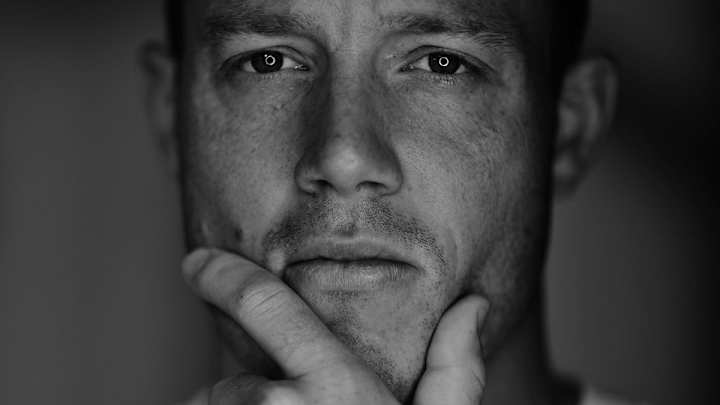
By Tim Shaw
I first noticed my body changing at the end of the 2012 season. Something was off, and I had no idea what. I worked closely with the Titans’ doctors, but they couldn’t find an answer, so I carried on.
It became increasingly clear I wasn’t the same player. At the end of training camp in 2013 I got cut. I wasn’t so much angry as I was confused. I was only 29. The year before, I had my best season as a pro. I still wanted to play, and knew I had some good football in me. So I kept training, figuring I’d end up somewhere.
The season began, weeks went by, and nobody picked me up. I had a tryout with the Texans in November, but that didn’t work out. Throughout the process, my body started doing things it had never done before. There was a slight twitch in my muscles, and I didn’t have great balance. I could barely do a curl because my right arm felt weak. If I couldn’t train at the same level I normally trained at, how could I play at the same level I normally played at?
I came to terms with the fact I could no longer play football. In March, I filed NFL retirement papers. Over the course of two years I had seen countless doctors, and nobody could give me answers. What happened to my body? Why did I have to retire?
That’s what led me to a specialist’s office in April, and the news that changed my life.
The doctor came in with his assistant, just the three of us in the room. I’m one to always stay positive, and I never considered it could be something too serious. I went into the visit thinking surgery on a pinched nerve would be the worst possible outcome. Then the doctor started talking. He was very deliberate and careful with his words, and I appreciated that. I know it was tough for him to tell me. It was devastating to hear.
Tim, you have ALS.
What do you do when you hear that? What can you do? When I left the doctor’s office, I was stunned. I couldn’t call anyone, because I couldn’t talk. Not right then, at least. I definitely couldn’t call my parents. They would be heartbroken, and I couldn’t fathom listening to the worry in their voices. I texted my brother on my way to the car, and then just carried on with my day as a usual. I even went to a business meeting. As I went through the motions, the diagnosis lingered in the back of my mind. I hadn’t really come to terms with it, and it definitely hadn’t hit me. All I knew was that everything was about to change.
* * *
‘Tim, You Have ALS’
(Jeremy Cowart for The MMQB)
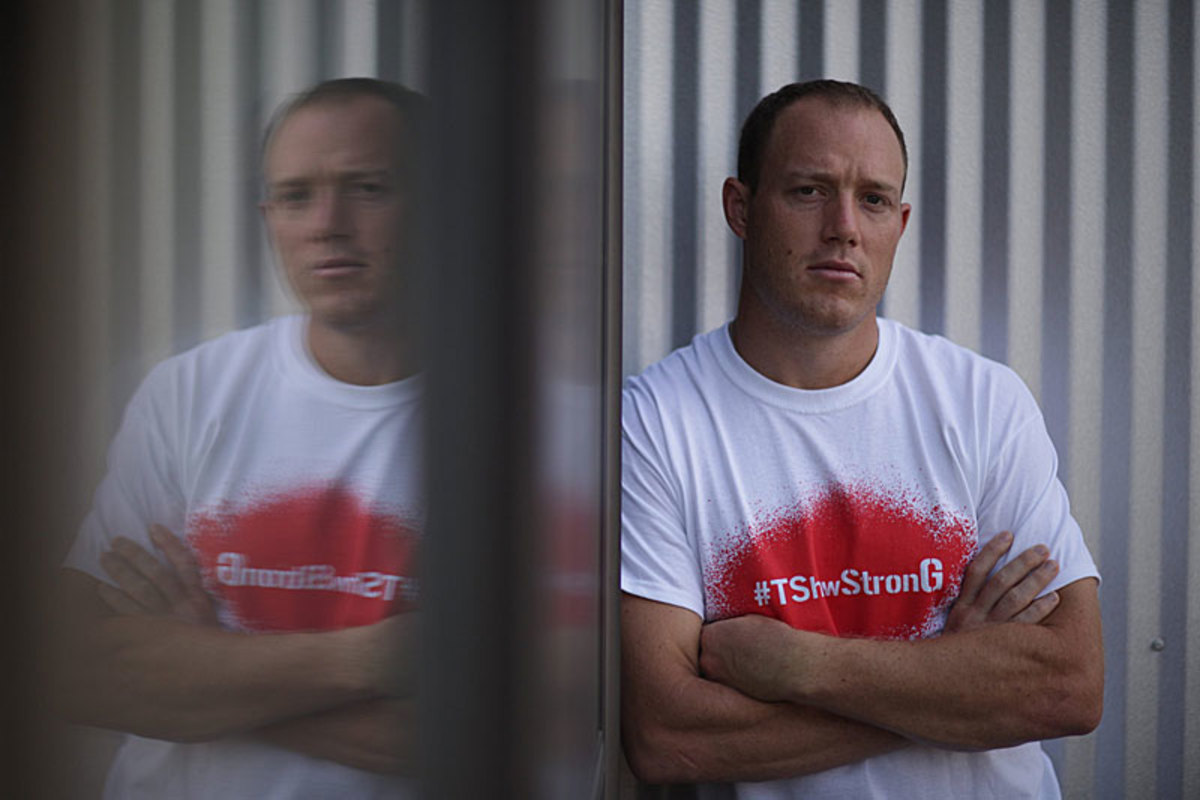
(John W. McDonough/Sports Illustrated/The MMQB)
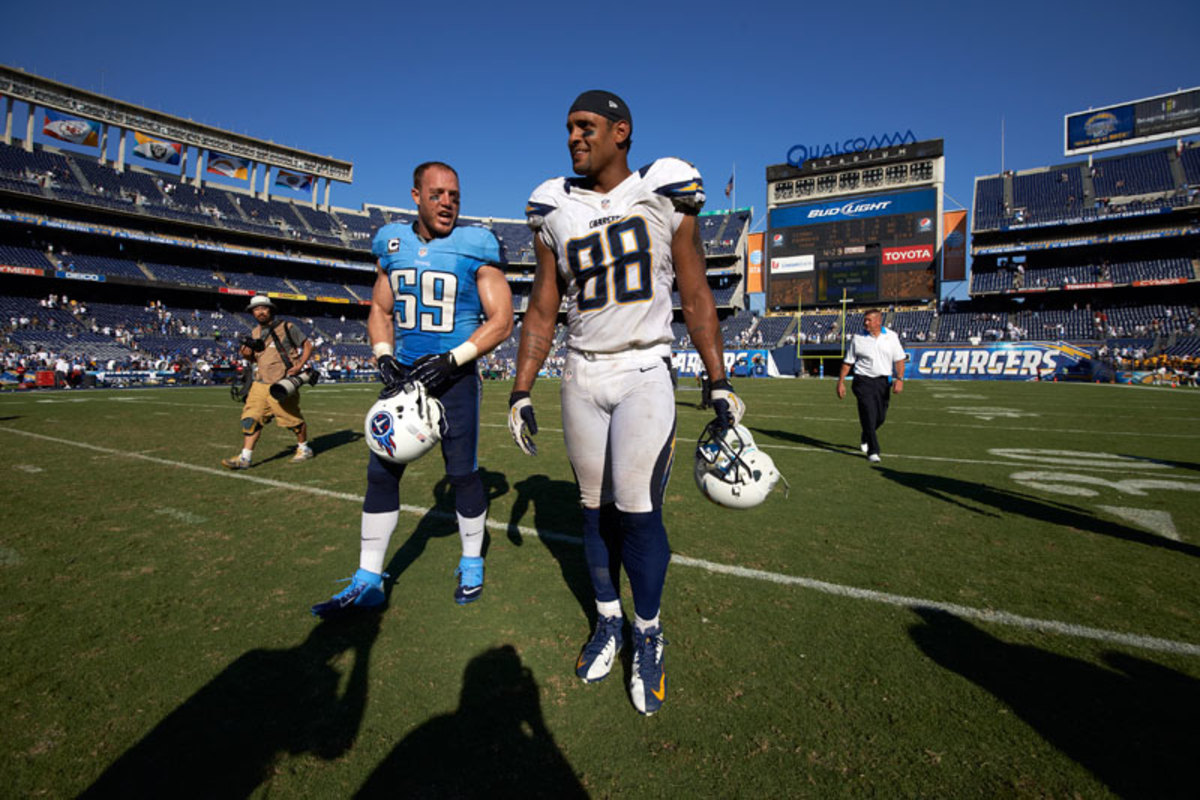
(Richard C. Lewis/Icon SMI)
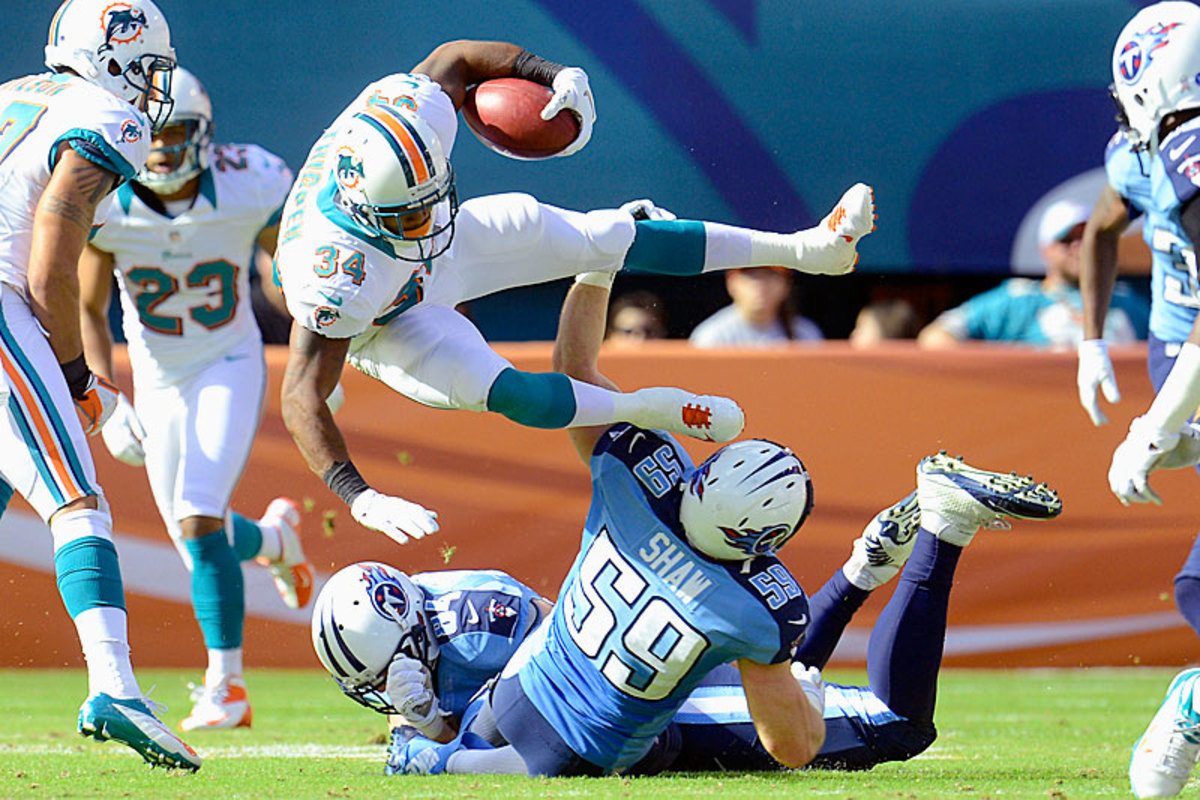
(Patrick Murphy-Racey for Sports Illustrated/The MMQB)
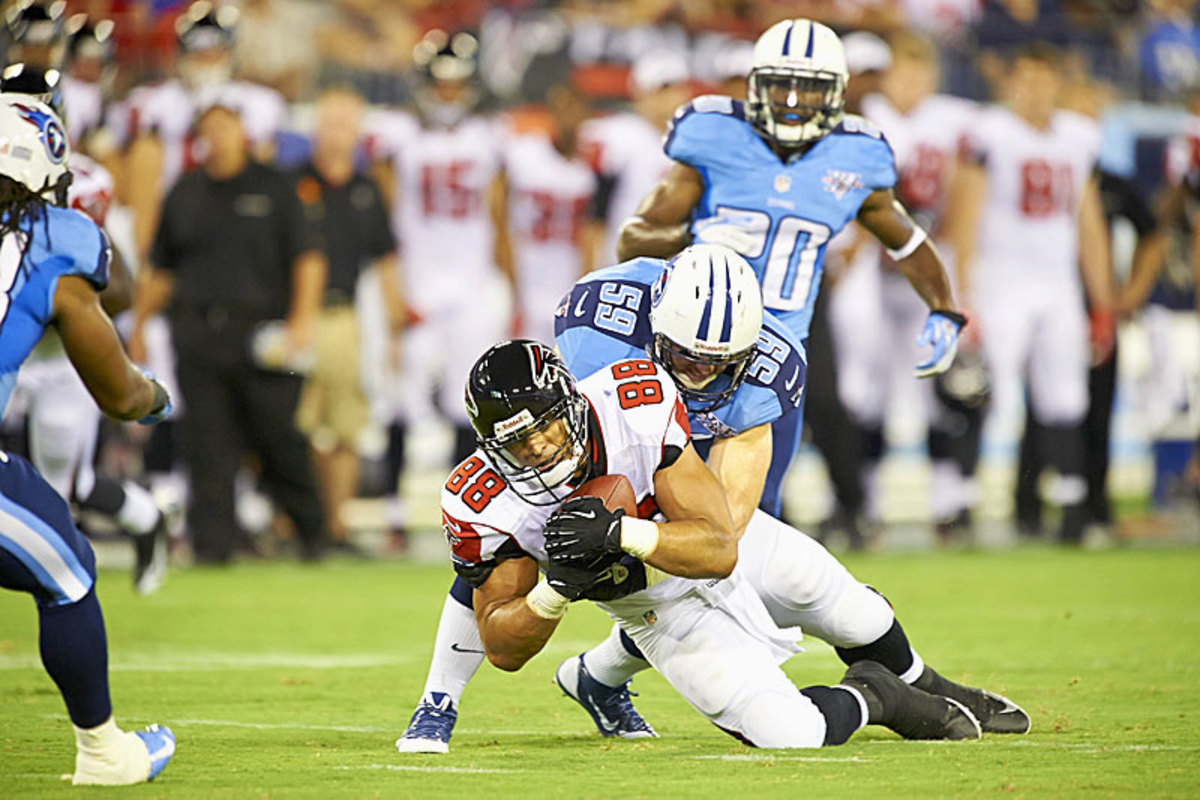
(Grant Halverson/Getty Images)
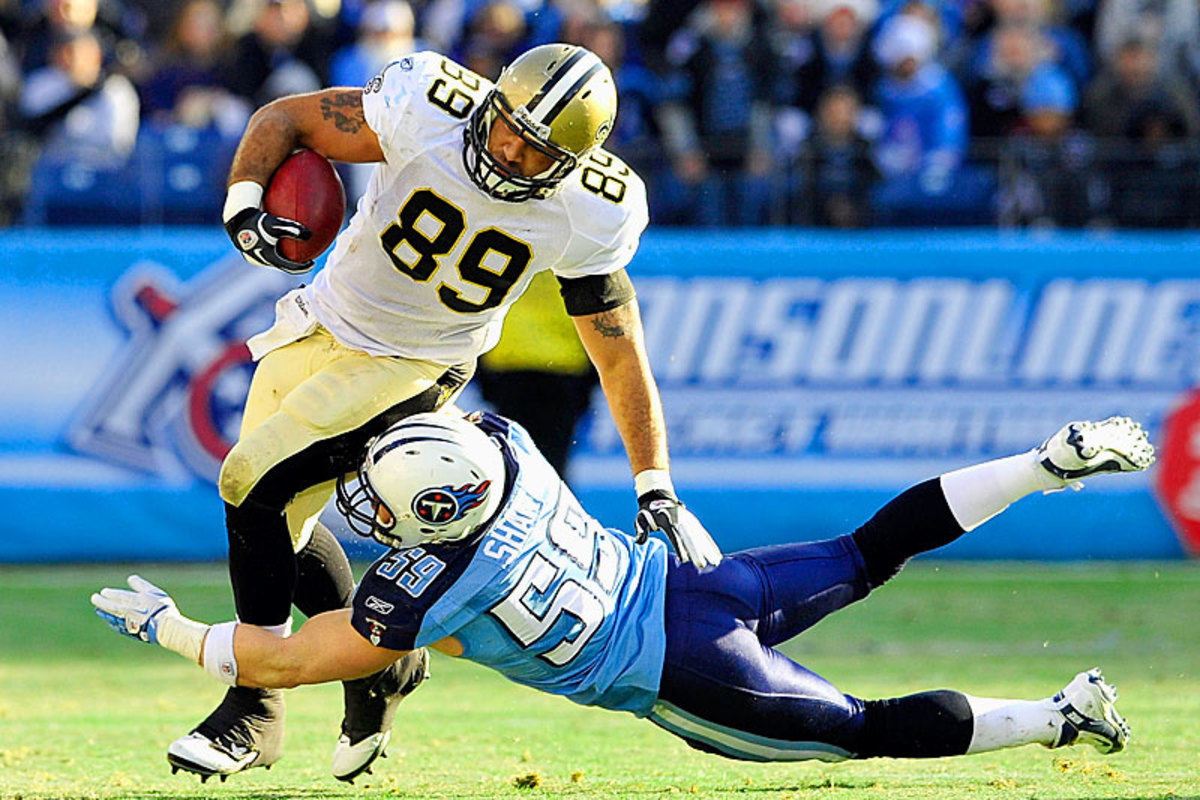
(Jeremy Cowart for The MMQB)
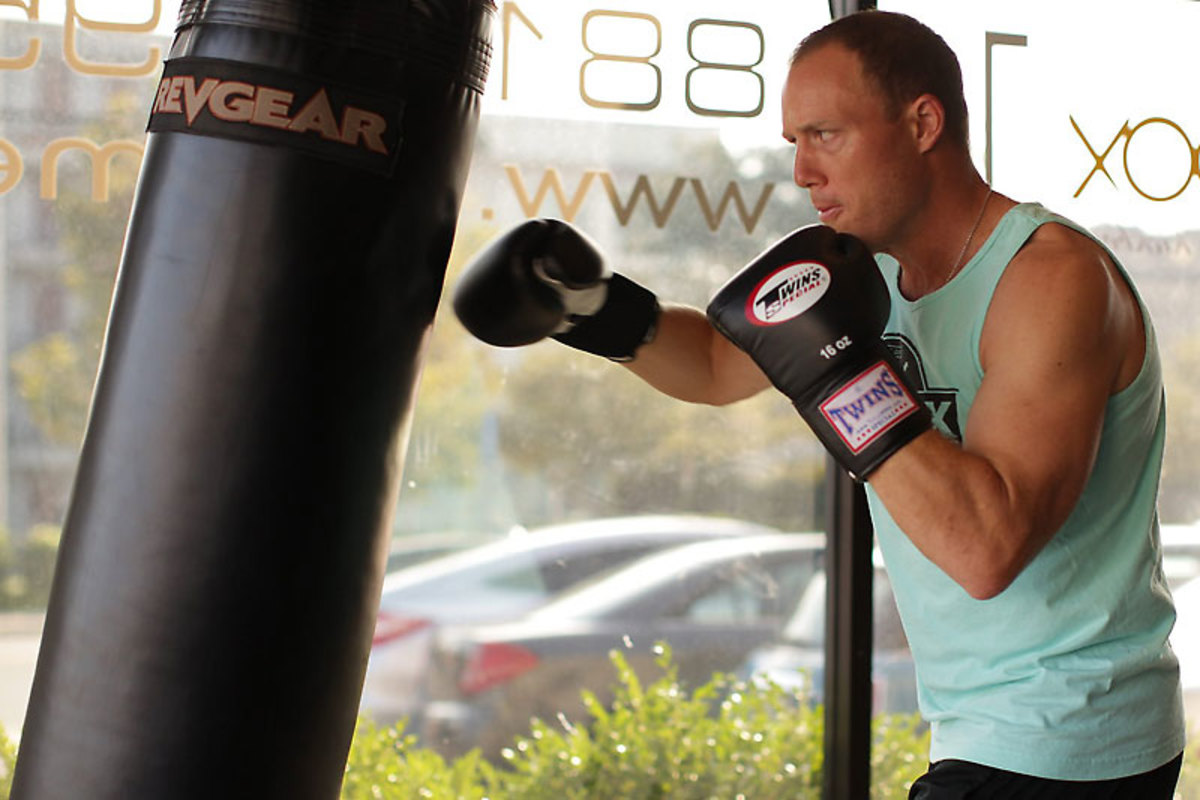
(Jeremy Cowart for The MMQB)
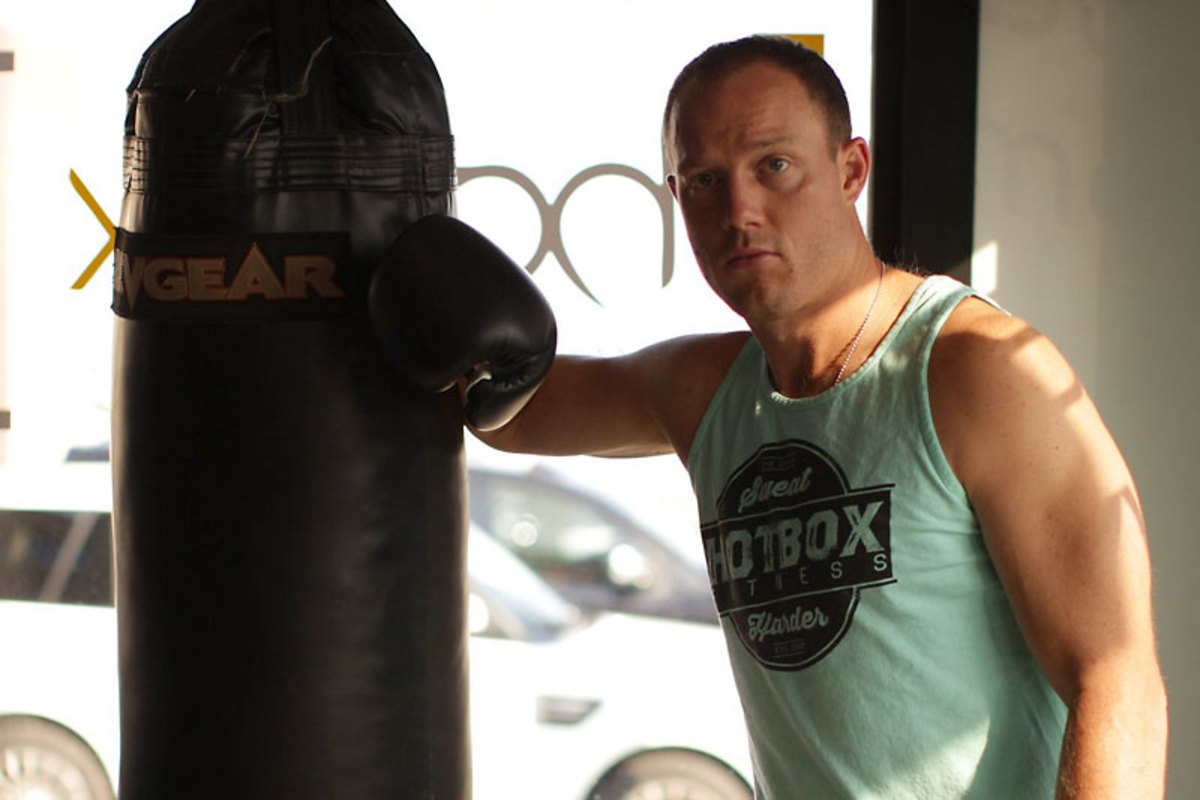
Here’s the thing: I already knew a lot about ALS.
In February, my sister-in-law’s mother passed away from the disease. Over the past four years my family had witnessed and been a part of her journey. We watched her fight and her struggle. I couldn’t bear to think of my family going through that heartbreak again. I couldn’t imagine this disease affecting me.
Slowly I let close friends and family know. I kept things small as I came to terms with my new reality.
Then the Ice Bucket Challenge happened: video after video of athletes, celebrities and regular people dumping ice water over their heads, talking about ALS, raising awareness and money. I wasn’t quite ready to share my diagnosis with the world, but realized this was an opportunity to keep the conversation moving forward. It was my idea to make a video announcement on the Titans’ website, but it wasn’t easy to do. I got nervous before we filmed. It’s hard to tell the world you’re not doing great. I don’t want to be looked at someone who is sick. I have fears about people treating me differently or looking at me like a charity case.
A lot of people have asked if football had any role in my contracting the disease. I don’t have the answer to that. That’s the problem: ALS research has been severely underfunded.
I never could have envisioned the feedback I received. It was simply an outpouring of love and support. I heard from everybody and anybody. Guys I had played with, guys I had played against, people I only met once, people I had never met. My phone didn’t stop ringing for days; hundreds and hundreds of messages. I still haven’t responded to everybody; I don’t know how. To be the person everyone is praying for is amazing and humbling, but also difficult. It’s a reminder that things are bad.
A lot of people have asked if football had any role in my contracting the disease. I don’t have the answer to that, and I don’t think doctors know the answer either. That’s the problem: ALS research has been severely underfunded. When a person gets diagnosed with cancer, they know they can try treatment. There are medications they can take and survivor stories they can lean on. When a person gets diagnosed with ALS, they have no options. There are no success stories. There is little hope. You ask, Why aren’t doctors looking at me more? Why aren’t they studying me? Why are there no answers?
The Ice Bucket Challenge is great and has raised a ton of money. It shows that we can do incredible things when people come together. But I know it’s a fad, and soon it will fade away. The challenge now is, What are we going to do moving forward? A lot of questions need to be asked. A lot of movements need to happen. Let’s start raising money every year for ALS research. Let’s start focusing on getting answers for people who don’t have any hope.
* * *
Tim Shaw (front row, in gray) on his first Brazil trip. (Courtesy Tim Shaw)

By the time you read this, I’ll have already left for a 10-day trip to Brazil with my father. We’re taking a boat 18 hours deep into the Amazon, getting on a smaller boat to reach a small village, and working to help those people get fresh water. This is my second time taking this trip. At times it’s uncomfortable and tough. We sleep on the boat and there is a lot of manual labor to build a well. However, it’s an experience that has truly altered my perspective on life. It’s an adventure, and you connect with people on a completely different level: singing with them, going to church with them, working on improving their lives. When I’m serving, when I’m doing something that’s completely for someone else, that’s when I’m at my best.
Tim Shaw, photographed by Jeremy Cowart for The MMQB.

As humans we need to realize there’s always somebody struggling, always somebody who needs help. The more we can think about other people and do things for other people, the better off our world is going to be. Tomorrow isn’t promised, so stop wasting your time today. I want to challenge people to eliminate the things that don’t matter and increase the things that can make a difference. If you found out you weren’t going to be around in a month, would you be stressing about insignificant, trivial things?
I have ALS, but I am not letting that dictate my life. In June, I completed my master’s in business administration. I own a kick boxing gym in Nashville, co-own a music venue, and do vacation rentals. I’m dabbling in investing and some other business opportunities. I want to pursue those things—and I’m going to pursue them. I’m going to go on mission trips, I’m going to go on golf trips, I’m going to do all the things I have been doing, and I'm going to help people along the way.
I wish I didn’t have this disease, but I have been given this platform, and I will do whatever I can to push the conversation forward. I don’t know what that looks like at this point. I do know that any invitations I receive to speak, I’ll speak. Any opportunities I’m asked to get involved with, I’ll do so. I’ll get my own money and pour my own support into this. Now the world knows I have ALS. What are we going to do about it?
The ALS Association is committed to finding effective treatments and a cure for Lou Gehrig’s Disease. You can donate to the cause by clicking here, and you can follow Tim Shaw on Twitter by clicking here.

